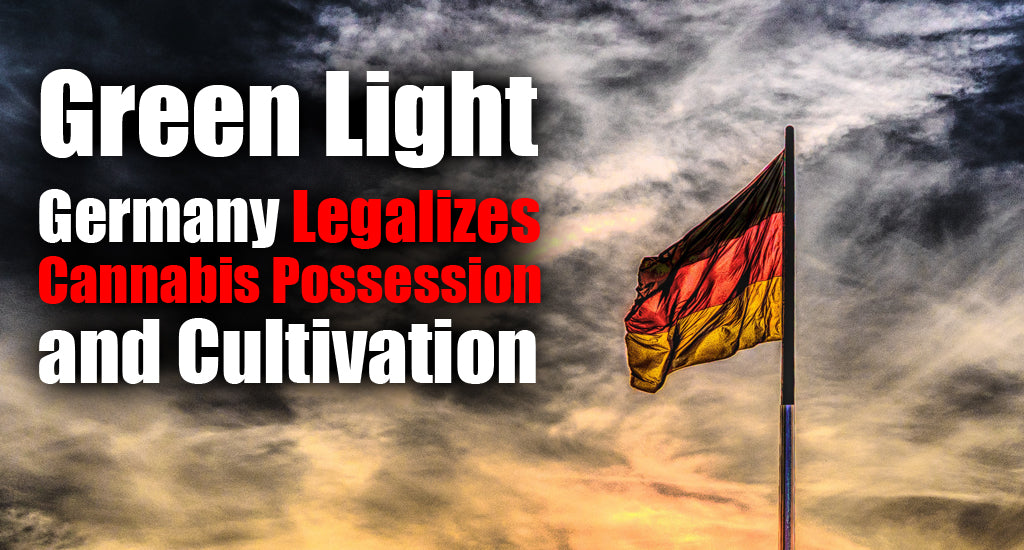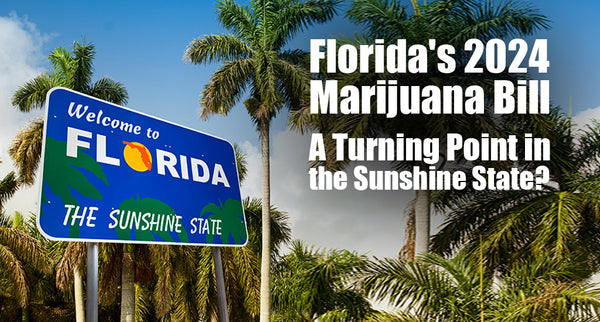
Green Light: Germany Legalizes Cannabis Possession and Cultivation
Germany has marked a significant turn in its drug policy by legalizing the possession and cultivation of cannabis for personal use, stepping into a new era of cannabis regulation. This move not only shifts the national stance on cannabis but also sets a precedent within the European Union, showcasing a blend of caution, innovation, and social responsibility.
German's Dawning of a New Green Era
On April 1, 2024, Germany embarked on a pioneering journey by decriminalizing the possession and home cultivation of cannabis. Adults aged 18 and over now have the liberty to possess up to 25 grams of cannabis and cultivate up to three plants for personal use. This groundbreaking law also introduces "cannabis clubs," non-commercial entities that can supply up to 500 members with a maximum monthly quantity of 50 grams per member. POLITICO
Nuts and Bolts of the Cannabis Legislation in Germany
The German cannabis legislation represents a landmark shift in drug policy, aiming to establish a regulated and controlled framework for the possession and cultivation of cannabis. This initiative seeks to balance personal freedoms with public safety concerns, introducing a set of clear, stringent guidelines that cater to various facets of cannabis use and distribution.
-
Possession Limits: The law sets possession limits to prevent abuse and potential legal gray areas, allowing adults to possess up to 25 grams of cannabis in public spaces and up to 50 grams in private spaces. These limits are designed to distinguish between personal use and illegal distribution, aiming to reduce the burden on the criminal justice system over minor possession cases and to focus on more significant drug trafficking and crime.
-
Cultivation Permissions: By permitting the cultivation of up to three cannabis plants per adult, the law encourages a more personal and responsible approach to cannabis use. This measure not only supports personal autonomy but also aims to undermine the illegal cannabis market by providing an alternative to unregulated sources. The cultivation limit is carefully chosen to balance the needs of personal use without encouraging large-scale, unlicensed production.
-
Cannabis Clubs Introduction: The establishment of cannabis clubs is a novel approach, allowing for a controlled supply chain to registered members. These clubs are expected to operate under strict regulations, ensuring that cannabis distribution is safe, controlled, and limited to adults. By capping membership and monthly supply amounts, the legislation seeks to prevent excessive use and diversion to the black market. This model also offers a communal aspect to cannabis consumption, potentially fostering safer usage environments and practices.
-
Age Restrictions and Advertising Bans: The legislation enforces a minimum age of 18 for cannabis consumption and cultivation, aligning with many of Germany's existing age-related regulations on substances. This is complemented by strict bans on cannabis advertising and restrictions on public consumption, especially near schools and playgrounds. These provisions are crucial for protecting minors and ensuring that the public is not unduly influenced by cannabis promotion, maintaining a focus on health and safety over commercial interests.
The nuts and bolts of the German cannabis legislation carefully navigate the complexities of decriminalization. Through its detailed provisions, the law endeavors to create a responsible, regulated framework for cannabis use that prioritizes public health and safety while acknowledging individual rights. This approach reflects a nuanced understanding of the challenges associated with cannabis policy, aiming for a balanced and pragmatic path forward.
Challenges and Controversies Surrounding the Legislation
The legislation to decriminalize cannabis in Germany, while a milestone in drug policy reform, has stirred significant debate and concern across various sectors of society. Each of the highlighted challenges and controversies reflects a broader discourse on balancing public health, safety, and individual freedoms.
-
Court Overload from Amnesty Provision: The amnesty provision, aimed at tens of thousands of old cannabis-related cases, presents a logistical and practical challenge for the judicial system. There's concern over how courts, already burdened by their existing caseloads, will manage the review and possible dismissal of these cases within a reasonable timeframe. This process could potentially stretch the capacity of the legal system, slowing down other legal proceedings and placing an additional administrative burden on the courts.
-
Prohibition Zones Around Educational Institutions: The debate over the adequacy of prohibition zones around schools and kindergartens touches on a broader concern about the proximity of cannabis access and consumption to vulnerable populations, particularly children and teenagers. Critics argue that the specified zones may not be sufficient to prevent exposure, inadvertently normalizing cannabis use among the youth and potentially undermining public health and safety efforts aimed at minimizing drug use in these demographics.
-
Impact on Youth and Potential Rise in Cannabis Usage: Perhaps the most contentious issue revolves around the impact of decriminalization on youth and the broader population. Critics fear that easing access to cannabis, even with regulatory measures in place, could lead to an increase in usage among teenagers and young adults, populations particularly susceptible to the adverse effects of cannabis on developing brains. These concerns are amplified by questions about whether the legislation adequately addresses the risk of increased consumption and whether the anticipated public health campaigns will effectively mitigate these risks.
While Germany's cannabis decriminalization law represents a significant shift toward a more liberal drug policy, it also underscores the complexities and potential unintended consequences of such reforms. The coming years will be critical in evaluating the effectiveness of the law in achieving its goals while addressing the challenges and concerns that have been raised.
Concluding Thoughts on Germany's Cannabis Legalization
Germany's move to legalize cannabis marks a significant shift in its approach to drug policy, emphasizing a modern balance between allowing personal freedoms and ensuring public safety.
This policy change is a proactive step toward undermining the black market and correcting the shortcomings of prior drug enforcement efforts. By embarking on this path, Germany sets a precedent in the European Union, potentially influencing future cannabis legislation across the continent. The implementation of this law into German society represents an experiment with profound implications, necessitating careful observation of its impacts on public health, legal systems, and social dynamics.
The success of this legislative change will largely depend on the effectiveness of its regulatory framework and the adaptability of German society to these new norms. As this initiative unfolds, it will offer valuable lessons for both proponents and skeptics of drug policy reform worldwide.
Leave a comment
Comments will be approved before showing up.



